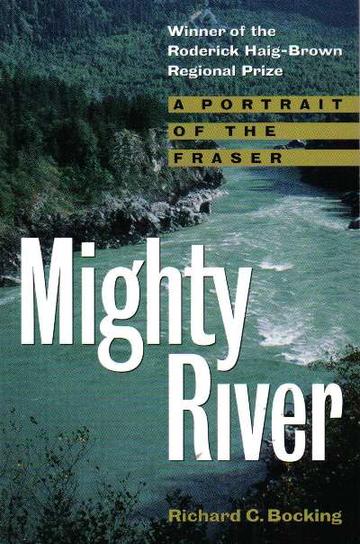About BC Books Online
BC Books Online was created for anyone interested in BC-published books, and with librarians especially in mind. We'd like to make it easy for library staff to learn about books from BC publishers - both new releases and backlist titles - so you can inform your patrons and keep your collections up to date.
Our site features print books and ebooks - both new releases and backlist titles - all of which are available to order through regular trade channels. Browse our subject categories to find books of interest or create and export lists by category to cross-reference with your library's current collection.
A quick tip: When reviewing the "Browse by Category" listings, please note that these are based on standardized BISAC Subject Codes supplied by the books' publishers. You will find additional selections, grouped by theme or region, in our "BC Reading Lists."
 Enlarge Cover
Enlarge Cover
Like the world's other great waterways, the Fraser River is the lifeblood of the territory through which it flows. And the Fraser's domain is vast, the river's basin encompasses half of British Columbia's forests and agricultural lands, the majority of the province's salmon streams, and two-thirds of its human population. Tacoutche Tesse -- the Mighty One, as the people of the Carrier National call the Fraser River -- has long been a provider of food, transport and inspiration to the people who live near its generous waters.
Winner of the 1998 Roderick Haig-Brown Prize, and nominated for the Hubert Evans Non-Fiction prize, Mighty River follows the Fraser from its source down to the Pacific, recounting many of the human and natural histories that intertwine on its banks. Author Richard Bocking describes the delicate ecosystems nourished by the Fraser and offers vivid historical glimpses of First Nations peoples, explorers like Alexander Mackenzie and Simon Fraser, and gold seekers trekking the river's canyon.
But more than simply telling the Fraser's tales, Mighty River sounds an alarm. Looking beyond the river's beauty, Bocking describes how careless development wounded the Fraser in the past and keeps the river vulnerable today. As the Fraser descends, it presents a microcosm of the conflicts and choices that dominate North America's economic and environmental agendas. This river, the author makes clear, is an irreplaceable gift that must not be squandered.
- Winner, Roderick Haig-Brown Prize
- Short-listed, Hubert Evans Non-Fiction Prize


